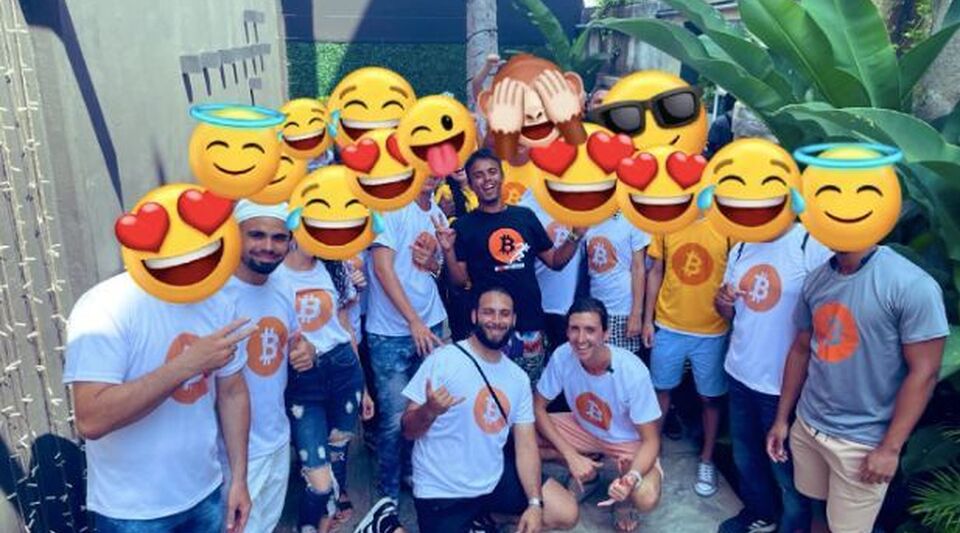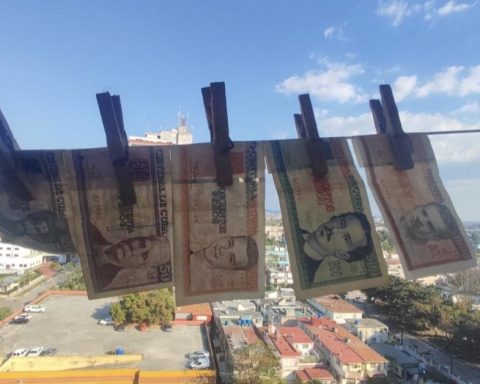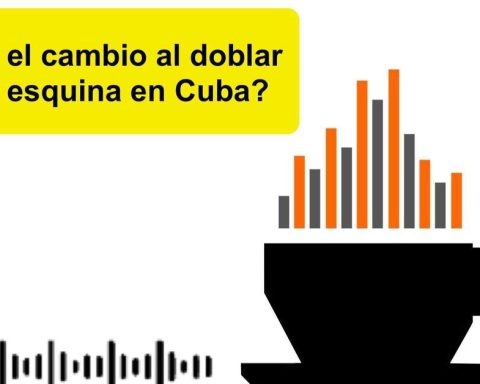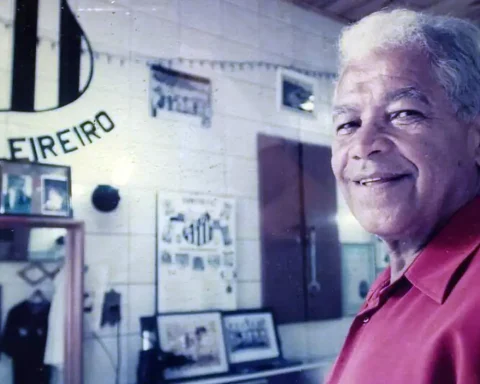Code names and emoticons instead of faces. The photo of the first meeting of Cuban bitcoiners, held on May 28 at the PaZillo bar in Havana, has gone viral in the world of cryptocurrencies. Surviving in a precarious economic environment like that of the Island, dodging the surveillance of the regime and betting on the future of digital money has made Cubans a kind of hero before their international colleagues.
Joe Hall, cryptocurrency specialist and journalist for the British media Cointelegraph, is one of the few uncovered faces pictured at the PaZillo bar. He traveled to Cuba to participate in the “community” meeting and now, from Madrid, he talks with 14ymedio about the enthusiasm of young Cubans for digital currencies.
“What moved me the most was to see that even under a regime as hostile as the Cuban one, where there seems to be no future, suddenly there is an economic hope – bitcoin – that does not allow itself to be crushed by the government,” says Hall, who is a figure on Twitter as Joe Nakamoto: a tribute to the anonymous creator of bitcoin, Satoshi Nakamoto.
The trip to the island, he says, was almost a discovery expedition, to learn about the digital money environment and how Cubans were coping with it. “I went to Cuba to investigate,” he says, summarizing a trip that took him to various towns on the outskirts of Havana and the capital itself, where the bitcoiners develop their businesses.
The trip to the island, he says, was almost a discovery expedition, to learn about the digital money environment and how Cubans were coping with it.
There was a lot of talk at the PaZillo bar, Hall explains. “I decided to go after hearing the opinion by Alex Gladstein in 2021 on the introduction of cryptocurrencies in Cuba. He wrote a report on the bitcoin ‘revolution’ on the Island. I wanted to go and see it with my own eyes.”
Camera in hand and with the intention of making a future documentary, Hall fully immersed himself in the Havana world of cryptocurrencies and – with the help of three organizers who prepared the meeting, after a long organization by Telegram – more than 60 Cubans they were able to talk with him about digital money.
They were people of all ages and occupations, men and women, business owners and hobbyists, or just Cubans – “very smart and educated,” Hall says – who are interested in doing their business in bitcoin.
“The goal was to educate the community on how to best use bitcoin, how to accept and trade with it, or pay in establishments and bars like PaZillo, which are open to this type of currency,” says Hall, who admits that, except for Havana and Matanzas, the other Cuban provinces have a long way to go on the issue.
To boost the use of bitcoin, the organizers sold pullovers with the bitcoin logo for 100 stacks each one, the equivalent of a dollar, “so that everyone could buy them,” he says.
“Throughout the meeting, I tried to understand how Cubans use bitcoin,” says Hall, who also reflected on the limitations and difficulties of using digital money in the Cuban environment.
In an article published on May 31, he exposed his conclusions: “Cuba’s foray into bitcoin marks a break with the centralized economic model that has shaped the Cuban economy for decades. Despite limited internet access, financial restrictions and a socialist government, the meeting highlighted that Cubans They are increasingly turning to crypto as a means of financial freedom and an ‘exit’ from the local economy.”
It is disturbing, however, the attention that the Government has paid to that world and the concern with which they followed the announcement of the meeting in Havana.
It is disturbing, however, the attention that the Government has paid to that world and the concern with which they followed the announcement of the meeting in Havana. “One of the State Security spies began to follow me in a market and I had to play the role of ‘silly gringo.’ However, he never questioned me,” he says.
Despite the economic precariousness of the country, Hall perceives a glimmer of hope in the relationship of young Cubans with alternatives such as bitcoin. He had known Cuba in 2019 and, despite the fact that a few months before he had started connecting from mobile phones, the most effective thing was to look for a Wi-Fi in the central square of towns and cities.
The change has been made by the internet, despite the connection difficulties. “Cubans are very smart. They learned to use VPNs and have found many ways around government surveillance. It is true that the country has deteriorated, but the Internet is everywhere and bitcoin, by nature, is the money of internet. That has made me optimistic, despite the fact that the regime’s first reaction to any eventuality is to cut the connection,” he reasons.
Another benefit of using cryptocurrencies in an economy like Cuba’s is that, since the country cannot guarantee stability, bitcoin becomes a good option for saving: “In Cuba you can’t really save in dollars or euros, much less in pesos. But in this context, questions also arise: “To what extent will the Government remain idle?”
For the people, on the other hand, it can be a viable economic way out of the “horrendous” situation that is being experienced. As for the regime, “it cannot touch bitcoin”, sums up Hall, and that is what the security of this currency is based on: “It cannot be confiscated”.
________________________
Collaborate with our work:
The team of 14ymedio He is committed to doing serious journalism that reflects the reality of deep Cuba. Thank you for accompanying us on this long road. We invite you to continue supporting us, but this time becoming a member of our newspaper. Together we can continue transforming journalism in Cuba.

















